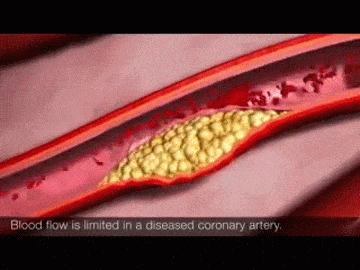Breakthrough : Minocycline identified for treating atherosclerosis after mechanism causing artery hardening discovered
Source: Thailand Medical News Jun 12, 2019 6 years, 6 months, 1 week, 13 hours, 23 minutes ago
Researchers from the University of Cambridge and King’s College of London have identified the mechanism behind hardening of the arteries, and concluded in animal model studies that minocycline, a generic medication normally used to treat acne could be an effective treatment for atherosclerosis.

Currently there is no treatment for hardening of the arteries, which is caused by build-up of bone-like calcium deposits, stiffening the arteries and restricting blood flow to organs and tissues, often leading to conditions linked to heart disease, high blood pressure, stroke, dementia and also chronic kidney disease.
The researchers found that a molecule, poly(ADP ribose) or PAR, that is normally associated with DNA repair, also drives the bone-like calcification of arteries.
Co-leader of the team, Professor Melinda Duer from Cambridge's Department of Chemistry in an interview with Thailand Medical News commented,”Artery hardening occurs in individuals as they age but in patients on dialysis, the process is accelerated even in children, and no one knew why and how to treat it until now. The hardening or biomineralization is crucial for bone production, but in arteries, it causes a lot of negative issues. The team was curious to find out what triggers the formation of calcium phosphate crystals especially in high concentrations around the collagen and elastin which makes up much of the artery wall.
Utilizing NMR spectroscopy, the team found that when cells are stressed or when they die, they release PAR, which binds very strongly to calcium ions. Once released, the PAR starts mopping up calcium into larger droplets which stick onto the components in artery walls that give the artery its elasticity, where they form crystals and solidify, hardening the arteries.
After discovering the links between DNA damage, PAR, bone and artery calcification, the team then looked into a way of blocking this pathway through the use of a PARP inhibitor. Together with Cycle Pharmaceuticals, a UK-based company, the team identified six known molecules that they thought might inhibit the PARP enzymes. Detailed experiments with these showed that the antibiotic minocycline was highly effective in preventing hardening of the arteries.
Additionally, using animal models with chronic kidney disease, the researchers found that minocycline could treat hardening of the arteries by preventing the build-up of calcium in the circulatory system.
The research and discovery spanned almost 12 years and was finally published in the journal
Cell Reports.
The technology has been patented and has been licensed to Cycle Pharmaceuticals by Cambridge Enterprise, the University's commercialisation arm. The researchers are initiating a clinical trial in patients within the next few months and many in the medical industry are looking forward towards the results of these trials,as it could represent the final discovery of a cure for atherosclerosis.
Reference: Cell Reports (2019). DOI: 10.1016/j.celrep.2019.05.038
